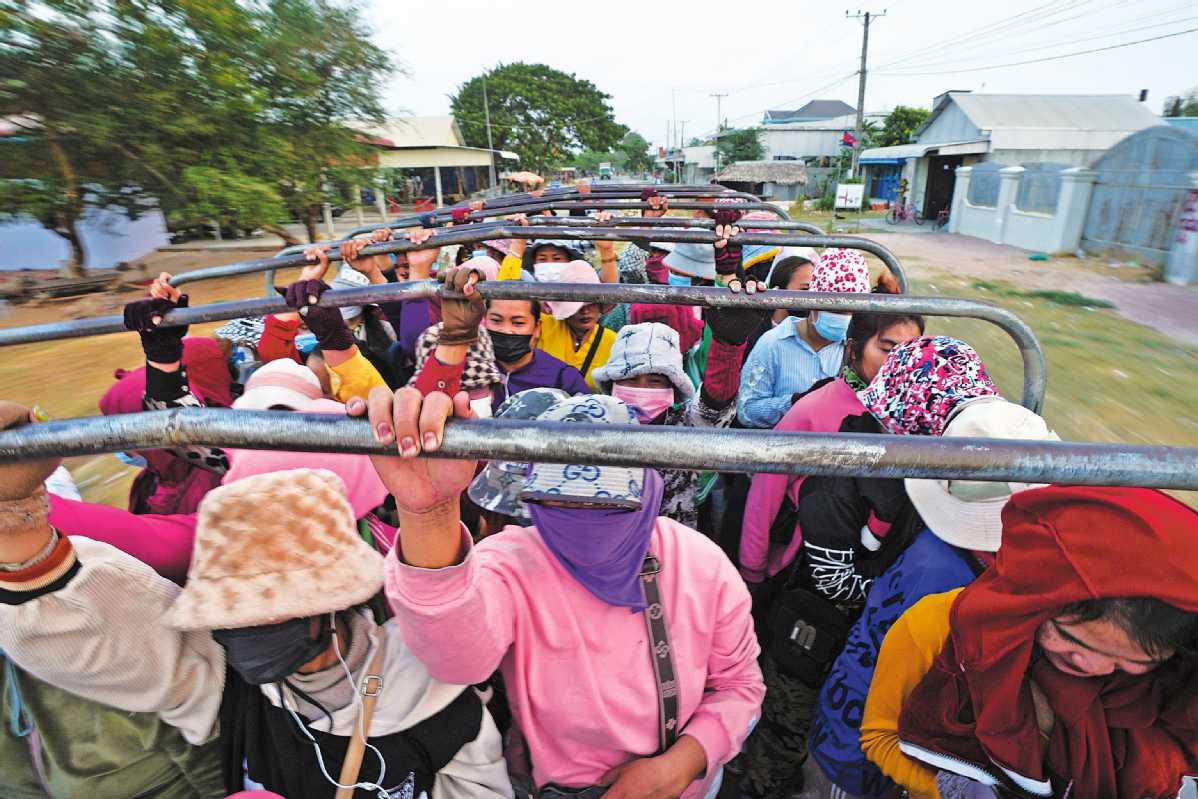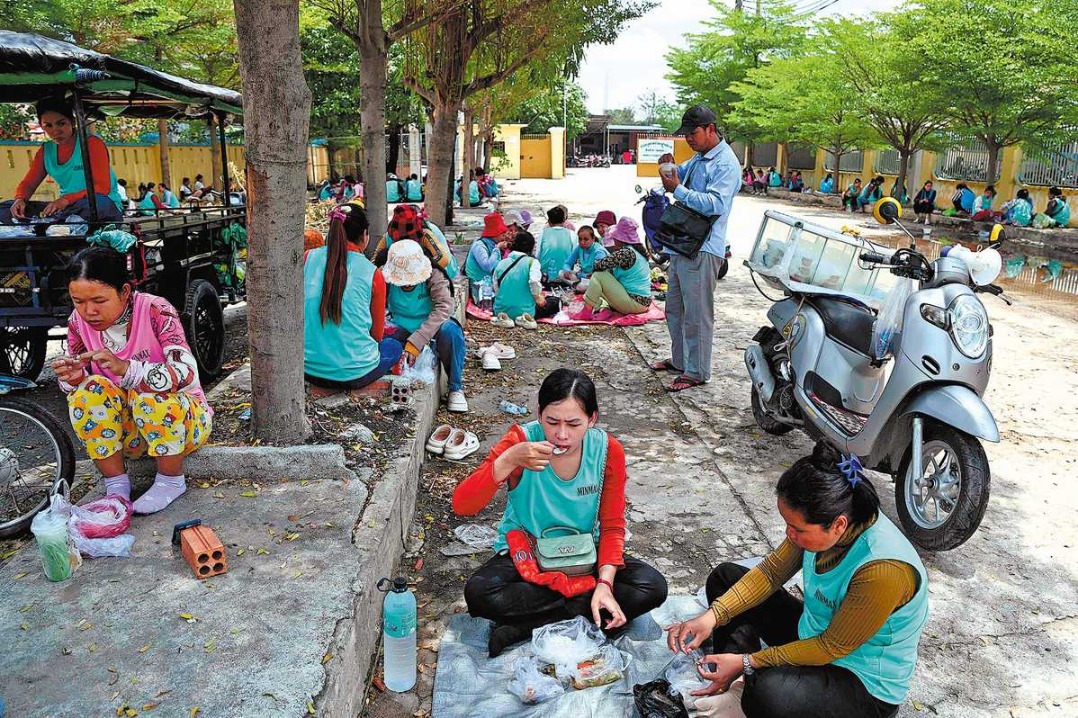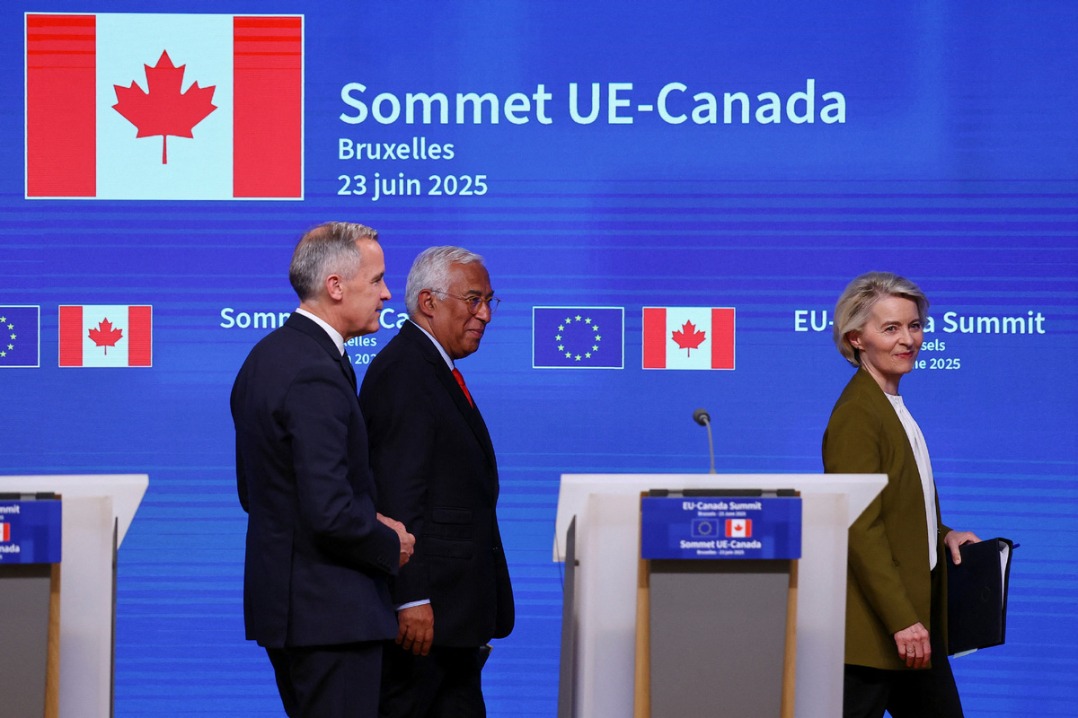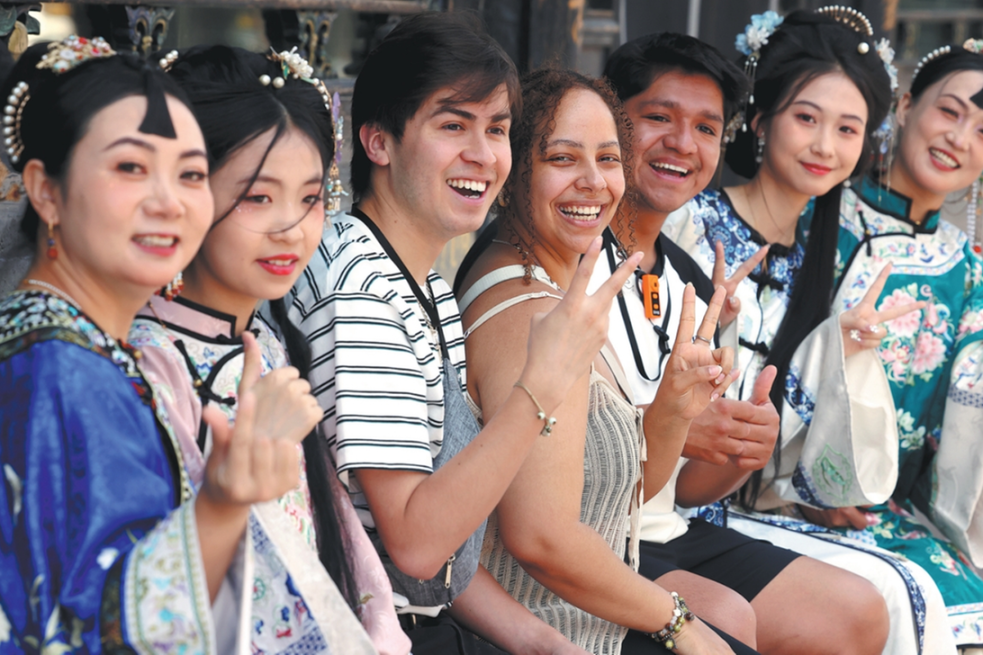Fashion fabrication
Cambodian workers suffer from climate 'greenwashing'


Editor's note: In this weekly feature China Daily gives voice to Asia and its people. The stories presented come mainly from the Asia News Network (ANN), of which China Daily is among its 20 leading titles.
Major fashion brands like Hermes, Nike and Lululemon are facing accusations of climate "greenwashing", with a new report from international nongovernment watchdog Business & Human Rights Resource Centre claiming their bold decarbonization pledges overlook the plight of garment workers in Cambodia.
The report, titled "The missing thread: Workers absent from fashion companies' climate plans", suggests that while 44 of 65 global brands have committed to cutting emissions by 2030, none have plans to protect workers from climate impacts or job disruptions in key manufacturing hubs.
In Cambodia, where the garment industry employs over 800,000 workers and accounts for 16 percent of GDP, factory workers face dire conditions exacerbated by climate change. The report highlights extreme factory heat reaching 39 C, causing exhaustion and fainting on production lines.
It alleged that workers who raise concerns are often dismissed, while adding that flooding creates safety hazards, with reports of electrical shocks and slippery conditions, while heat-related factory closures and slowdowns reduce productivity, slashing workers' incomes as they struggle to meet targets.
According to the report, the lack of a just transition — where workers are included in the shift to cleaner energy — leaves Cambodian garment workers vulnerable. Factories are adopting greener technologies, but workers receive no training to adapt, risking job losses. Factory owners, citing costs, refuse to implement mitigation measures, shifting the burden of climate adaptation onto workers.
"Unions, critical for advocating worker rights, are excluded from Cambodia's national climate planning, with language barriers further marginalizing them," it added.
"Fashion is fueling Cambodia's economy, but it must be clean and fair," said Natalie Swan, labor rights program manager at the Business & Human Rights Resource Centre.
"The brands' climate targets are hollow without protecting the workers who make their products. Decarbonization without workers as partners is not a just transition — it's a dangerous shortcut," she continued.
































